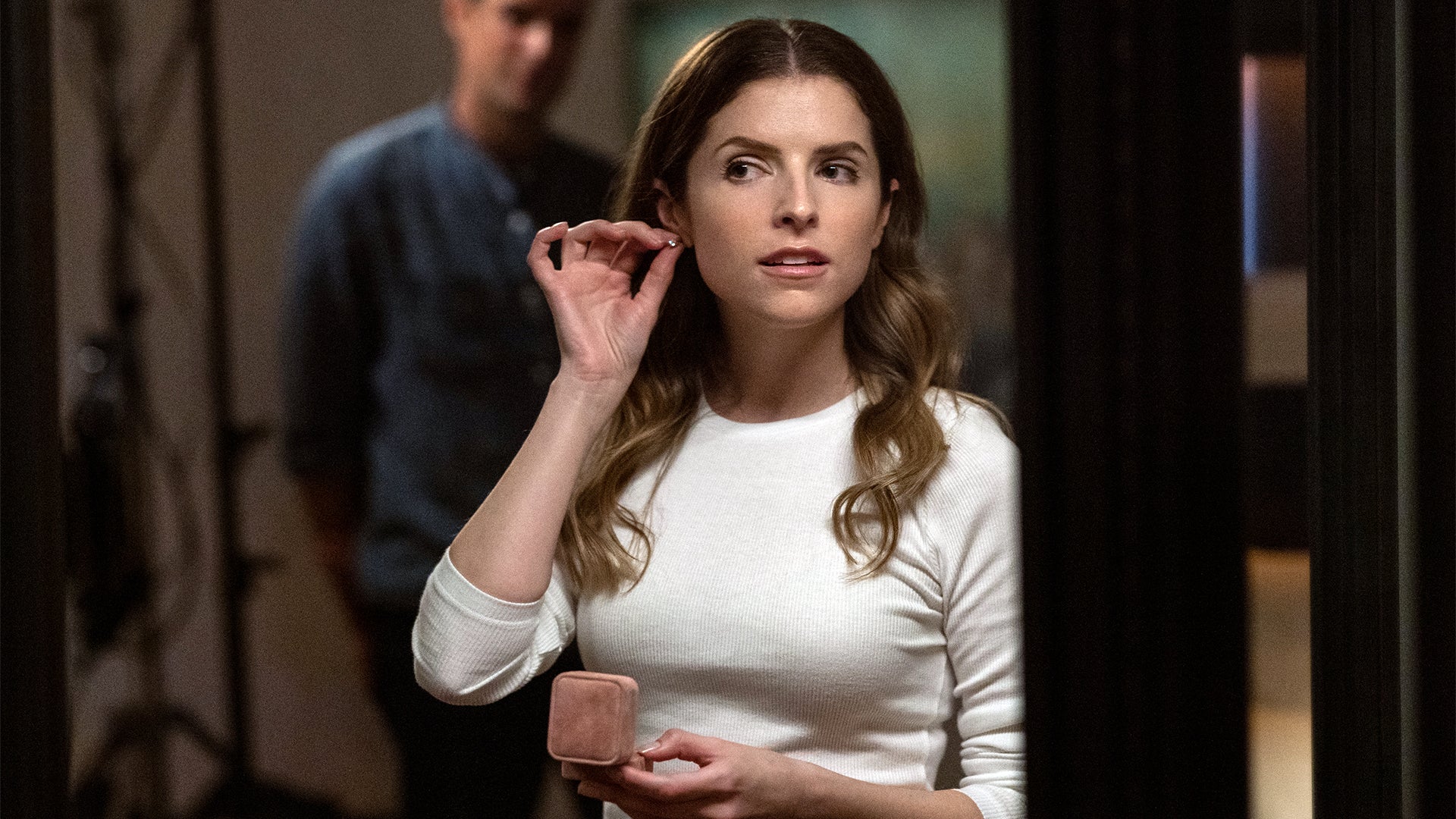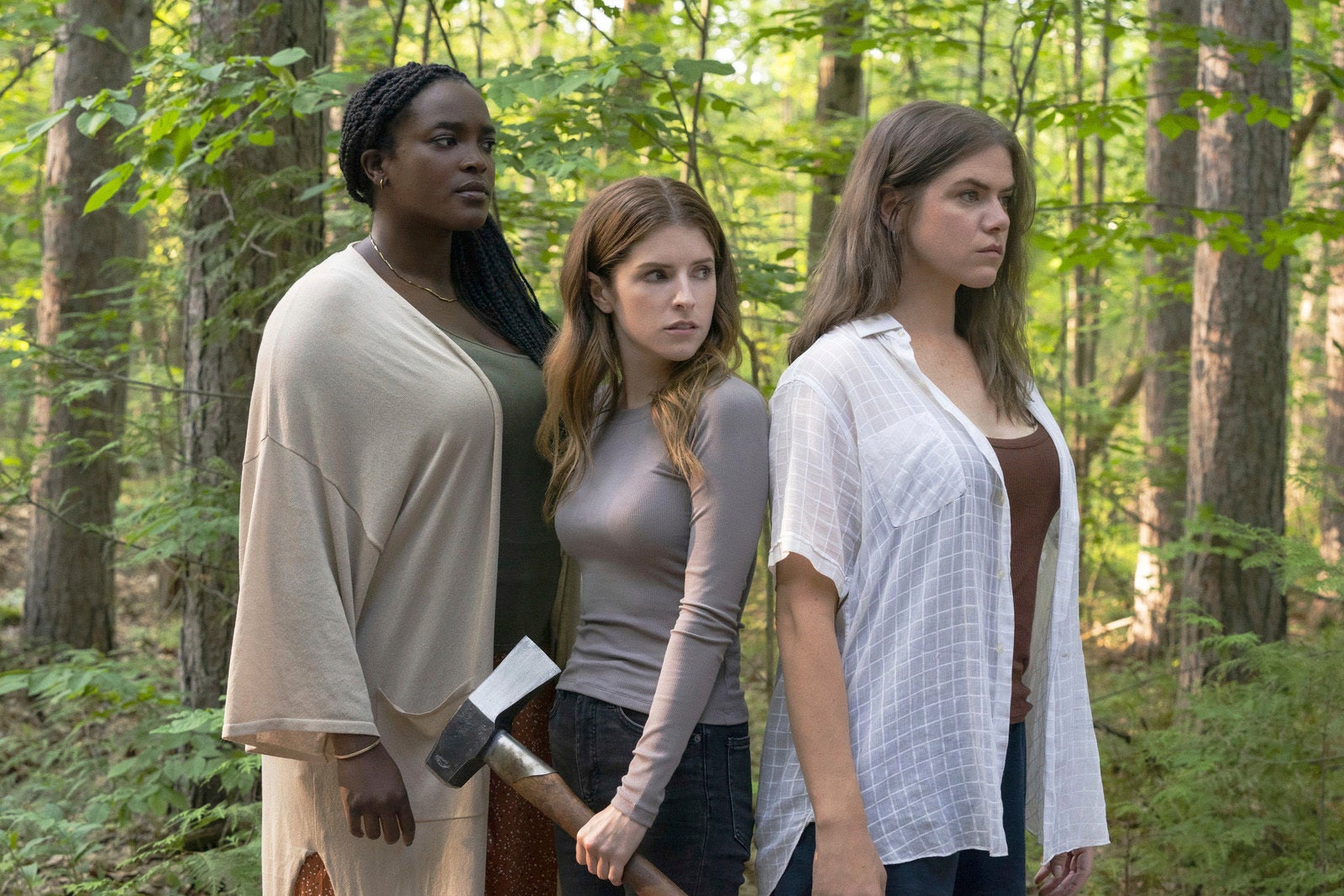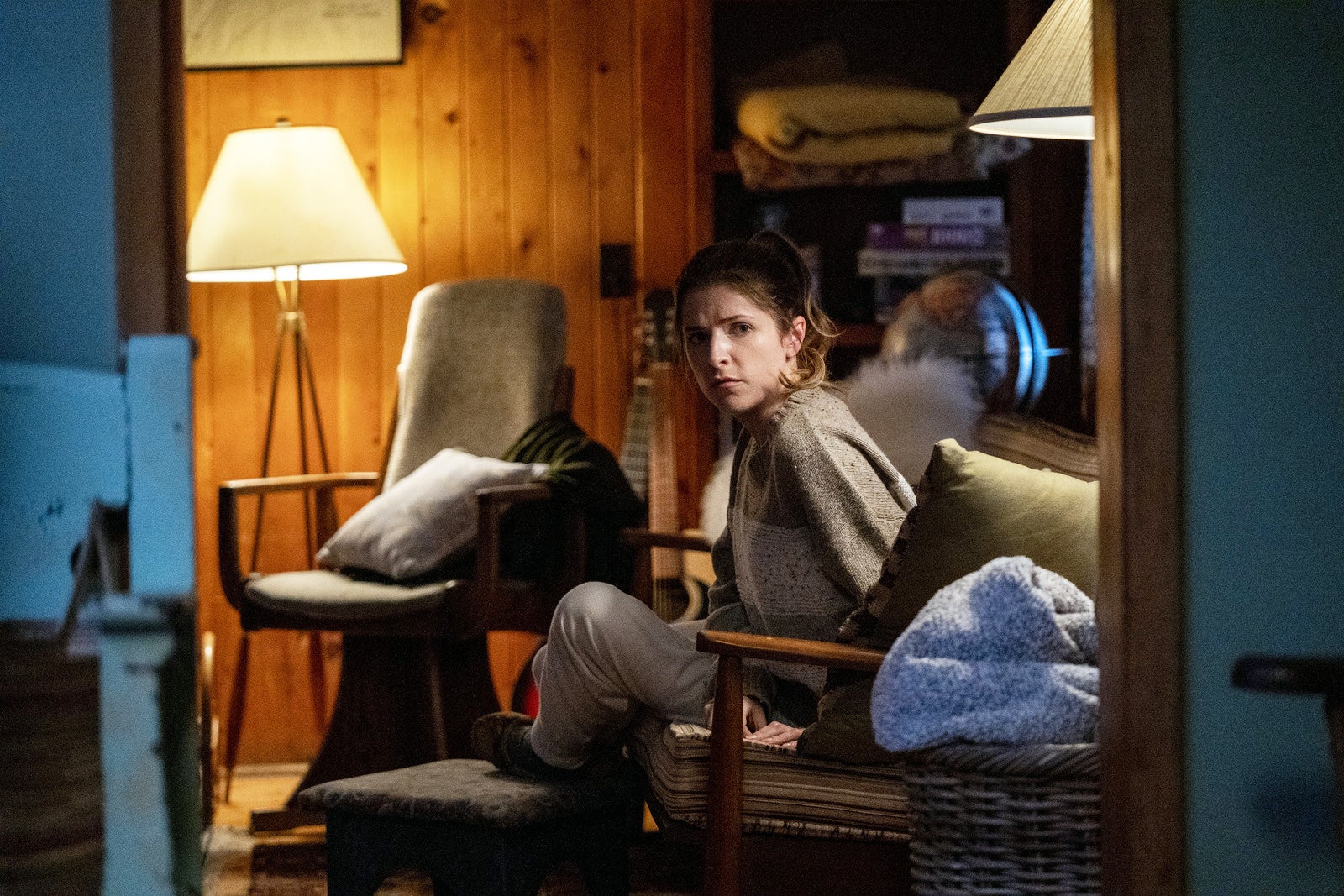My friends didn’t know what to do when I was being emotionally abused – I don’t blame them
Domestic abuse doesn’t just affect its victims – it can have a profound effect on loved ones who suspect what is going on but don’t know what to do. Here, filmmaker Alanna Francis tells Zoë Beaty her story and explains why she decided to make a film exploring what happens to friendships when someone is being abused behind closed doors


To begin with, Alanna Francis didn’t understand why her friends didn’t like her new boyfriend. To her, it had been a flurry of love – they had met in New York and fallen for each other quickly, moving in together in a matter of weeks. Francis, who was in her twenties, had been overcoming another heartbreak at the time, but now there was someone there, “telling me how wonderful I was, how interested in me he was. Right away it was intense,” she explains, but then, she was intensely happy. Intensely loved. “I didn’t notice it was happening at all.”
The signs that she was being psychologically abused were subtle, almost completely hidden – until they weren’t. For a long time, she simply internalised the warnings. Her friends’ instant wariness of her new relationship “was a reflection on me”, she thought, “that I’d chosen someone ‘wrong’. Then he wanted to know where I was all the time; he was checking my emails. Things started to get worse and worse – he was becoming controlling.”
Bit by bit Francis, started to withdraw. She was no longer able to talk to her close group of girl friends; she saw them less and less. It wasn’t long before she found herself completely isolated, as her friends were left worried about what to do.
Her experience inspired her acclaimed film Alice, Darling, which was released in 2022, starring Anna Kendrick. The film was praised by viewers as a sharp, pertinent example of the very internal experience of coercive control and its insidious nature.
The psychological thriller sees Alice’s distress slowly unfold as her boyfriend, Simon, pushes her to breaking point. On the surface, their relationship could be mistaken for loving – his constant “concern” for her whereabouts; physically draping himself over her in public; his reminders that “No one loves you the way I do.”
But the undertones of his seemingly innocuous behaviour are carefully teased out to the fore by writer Francis and by Kendrick’s performance, which sees her anxiously lying to her friends to please Simon, and silently pulling out her hair in bathrooms as she begins to unravel.
Crucially, Francis depicts an important element of abusive relationships – the friends that suspect what is going on, but don’t know what to do. Alice is taken away on a girls’ trip, unaware that her friends are gently staging an intervention. Their initial concern has turned to fear.
“I had been through this experience, similar to Alice. But I kept thinking not only about what it was like for me, but what it must have been like for my friends,” explains Francis. “They didn’t really know what was going on with me; suddenly I was very different and strange.
“I’d always had this idea in mind of a group of friends going on vacation to stage some kind of intervention in their friendship, with the friend in the dark about it, but I didn’t know what the issue would be. And so those two things came together to make the script.”

While Francis’s friends never intervened in her relationship in real life, the dynamics between them were fraught. As anyone who has encountered an emotionally or physically abusive relationship will know, it’s a complicated circumstance.
“It’s hard to say to friends, ‘Well, this one time he read my email,’ or ‘This one time he called my friend while I was out, to check that I was really where I said I was going to be.’ If you say one of those things in isolation, it doesn’t seem too alarming. It was hard for me to pinpoint,” says Francis, now 38. “This happened to me decades ago, so one thing I’m glad about is that people talk about things differently now, which is great. But I think the conversation hadn’t come as far at that point. When I was writing Alice, Darling, I thought, maybe you don’t have to say it. Maybe you can feel it.”
By the time Francis felt she needed to leave her relationship, a year after it began, she was almost entirely isolated from the women she had only recently been so close to. “I started to realise I felt like I didn’t have anywhere to go,” says Francis. “I wasn’t earning a lot of money, I was interning. At that point, I couldn’t afford to live by myself, and I was alienated from my friends.
“Since the film came out, my friends have said to me, ‘Oh my God, I’m so sorry we weren’t there for you in the way these characters are.’ But they couldn’t have helped – they didn’t know.”
Francis never told her friends the extent of the abuse she was subjected to. “I don’t think they really fully understood until they saw the film,” she says. Like many women, she didn’t know how to tell them, or want to worry them. And, in the acute anxiety of an abusive relationship, there’s a form of isolation in constantly trying to prove that everything is OK.
“Even as it was going on, there was a kind of shame – and on his part, a lot of emphasis on what I was doing wrong all the time. So I was internalising that, and feeling bad most of the time, one way or the other, either within my friendship group or with him. My friends couldn’t see what was going on. I didn’t talk to anyone about it.”
It was Kendrick who convinced Alanna not to include any instances of physical abuse, a decision that the film was lauded for at the time. “It made me realise that, in some ways, I was responding to the idea that the stakes have to be higher – that physical abuse is more serious, which means this experience doesn’t matter as much.”
Her relationship with Kendrick, who opened up about her own emotionally abusive relationship during filming, became crucial, not just for the film’s success but for the thousands of women who feel similarly trapped: isolated, stripped of any confidence or sense of identity; convinced that to be taken seriously, the abuse they suffer must be indisputably displayed on their bodies.
Nearly half of all women (48.4 per cent) and men (48.8 per cent) experience psychological abuse in relationships over their lifetime, one US study found, while 95 per cent of physically abusive partners also emotionally abuse their victims.

Over time, this kind of violence serves to erode a person’s self-esteem and self-worth. Victims are isolated from friends and family, and are frightened, humiliated, monitored and derided over their opinions or appearance. Often, abusers also seek to take control of their victim’s finances, leaving them completely dependent and feeling unable to escape.
Francis was finally able to leave after starting a new job, and making more money and friends at work helped her to feel more confident. The following six months were spent “feeling angry”, she says. “I had this simmering rage all the time and I couldn’t understand where it was coming from.” It wasn’t until a long time afterwards that she fully recognised what she had been through. The long-term effects still linger.
“I don’t know if this was always in me, but I sometimes have a [sense of] hyper-responsibility, where I feel like I did something bad and that means I’m a bad person. Like, I’m terrible because, I don’t know, I cut someone off in traffic,” she says.
“I have a lot of anxiety about whether I’m good or not. And I do sometimes trace it to the way that, in that relationship, I always felt like I was doing something wrong. Alice has a line in the movie where she basically says to her friend, ‘You wouldn't love me if you knew how bad I am.’ And that is a core feeling that existed in me for a long time.”
Turning her experience into a film was cathartic, she says. She’s proud that it has helped – and continues to help – other women to make sense of their abuse, and for the friends witnessing it, to gain a greater understanding of the realities of being in a relationship like this.
There’s an overwhelming helplessness that comes with supporting a survivor, which Francis is all too aware of – the difficulty in penetrating the wall of silence they’ve built; the balancing act of trying to intervene without alienating them altogether.
Now, she’s happy, working on her thriving career – and her friends are as close as ever. She’s grateful. “I could have lost those friendships for ever if I had stayed in that relationship, and those friendships are so foundational to my life,” she says. Francis hopes that Alice, Darling shows the importance and strength of female friendships, and that people take away a sense of validity to help them to leave, or avoid, emotionally abusive relationships.
“There was a conversation that I had with [Kendrick] at one of the screenings,” she says, “where we were both saying, ‘I hope people see this and recognise it is enough. That it might not look like other depictions of abusive situations that we’ve seen, but that it does matter. It matters. It is enough.’”
How to support a friend you know is being abused
The Independent has partnered with Refuge for our Brick by Brick campaign, in which we’re raising funds to build homes to help abused women. Here, the organisation explains how you can help if you suspect a friend is in need:
Create a safe space. Make sure you speak in private. Make it clear you won’t judge. Only then might she feel safe enough to open up.
Tell her you’re worried. Try “You haven’t seemed yourself lately. Is there anything you want to talk about? Is everything OK at home?”
Take her seriously. Listen. Believe her. Women are often dismissed. They’re told he seems like a nice guy, or a great dad. Trust what she says.
Tell her it’s not her fault. Your friend might blame herself. Tell her she is not to blame. He alone is responsible.
Don’t judge her. Don’t ask why she hasn’t left or judge her choices. Instead, build her confidence and focus on her strengths.
Remind her she’s not alone. She may have been deliberately isolated. Say you are there for her, that there are solutions, and that support is available.
Encourage her to contact us. Reassure her that she can contact us 24 hours a day, 365 days a year. Help her find out about her rights and options.
Give her time. It might take a long time before she confides in you. Be patient. Recognising the problem is the first step.
Please donate now to the Brick by Brick campaign, launched by The Independent and charity Refuge, to help raise £300,000 to build a second safe space for women where they can escape domestic abuse, rebuild their lives and make a new future. Text BRICK to 70560 to donate £15
The national domestic abuse helpline offers support for women on 0808 2000 247, or you can visit the Refuge website. There is a dedicated men’s advice line on 0808 8010 327





